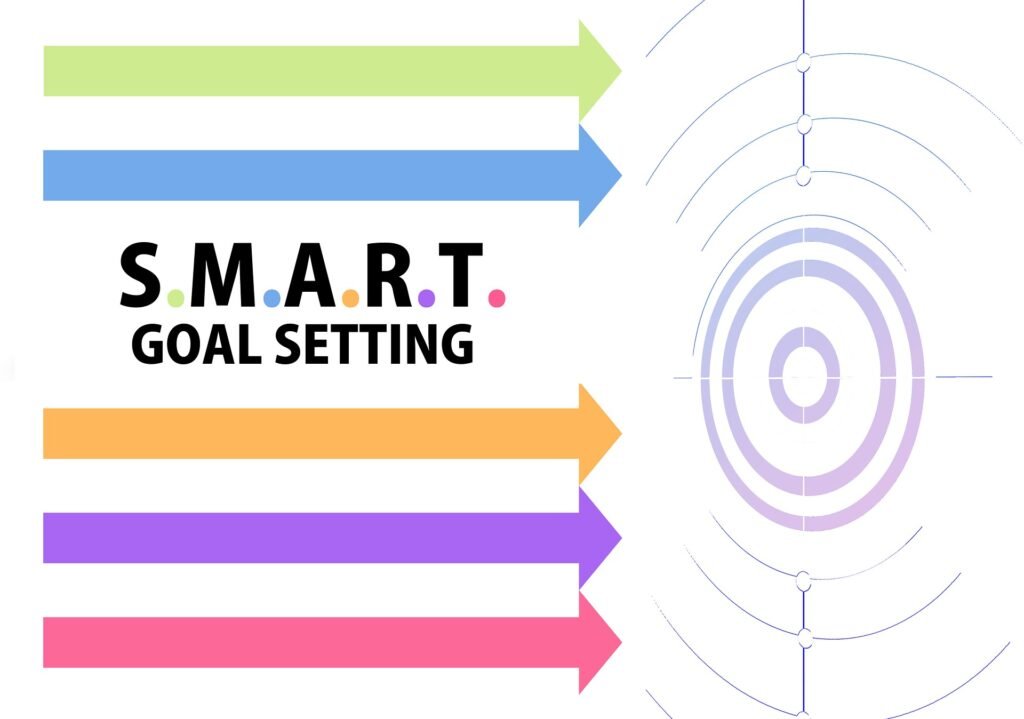
Setting the right goals is essential for success—whether you’re striving for personal development, scaling a
startup, or advancing your career. Setting SMART goals can be the key to turning your aspirations into
reality. Whether you’re an entrepreneur with big dreams, a Gen Z go-getter navigating the gig economy, or
a young professional looking to elevate your career, the SMART framework is a proven strategy to achieve
your goals.
In this comprehensive guide, we’ll show you how to set actionable, measurable, and sustainable goals that
will keep you on track all year long. Plus, we’ll share some innovative tools and goal-setting apps to
streamline the process and help you stay focused.
Ready to make this year the best one yet? Let’s dive into how SMART goals can transform your growth
journey.
What Are SMART Goals?
SMART goals aren’t a new concept but has remained effective because of its simplicity and practicality.
SMART is an acronym for:
S – Specific
M – Measurable
A – Achievable
R – Relevant
T – Time-bound
Using this framework helps you create measurable goals that are both realistic and motivating. Whether
you’re growing your social media presence, scaling your startup, or enhancing your professional skills,
SMART goals ensure you’re making measurable progress towards your objectives.
Example of a SMART Goal
Imagine you’re a Gen Z entrepreneur looking to grow your TikTok following to promote a new product.
A SMART goal could be structured like this:
Specific: “I want to gain 10,000 new TikTok followers.”
Measurable: “Track follower count weekly to monitor growth trends.”
Achievable: “Create engaging videos using trending sounds to stay relevant.”
Relevant: “Increasing followers will help boost my product’s visibility.”
Time-bound: “Achieve this milestone in three months.”
By breaking down your goal this way, every action you take will be aligned with your broader
entrepreneurial goals, driving results toward your business success.
Why Setting SMART Goals is Crucial for Young Professionals, Entrepreneurs, and Innovators

Setting vague, unachievable goals often leads to frustration and wasted time. SMART goals are particularly
powerful for professionals and entrepreneurs because they:
1. Boost Focus
SMART goals help you prioritize your objectives, allowing you to stay focused and cut through distractions.
Whether you’re launching a side hustle, scaling a startup, or working toward career growth, these goals will
keep you on the path to success.
2. Promote Innovation-Driven Mindsets
For entrepreneurs and innovators, breaking big ideas into smaller, actionable goals helps transform
creativity into real-world results. Whether you’re designing a new tech solution or refining your product
development, SMART goals ensure you’re moving in the right direction.
3. Build Momentum
Achieving smaller, more achievable goals builds confidence and momentum. Even small wins, like growing
your social media followers or completing a certification, will help you stay motivated as you tackle bigger
challenges.
4. Ensure Long-Term Success
SMART goals tie your daily actions to long-term professional aspirations. By setting measurable milestones,
you create a clear path for career development or business growth—increasing your chances of long-term
success.
Step-by-Step Guide to Setting SMART Goals

Ready to set goals that will drive professional growth and personal achievement? Here’s how to do it:
Step 1: Define What You Want to Achieve (Specific)
The first step in goal-setting is to clarify exactly what you want. Vague goals like “I want to improve my finances” or “I want to be more innovative” lack direction. Instead, get hyper-specific.
For financial goals: “I want to save $6,000 for a down payment on a car by December 2025.”
For professional development: “I want to earn a Google Certification in Digital Marketing by June.”
Step 2: Track Your Progress (Measurable)
Setting goals is only half the battle—tracking your progress is essential. Include measurable metrics to keep yourself accountable. Use apps like Habitica or track your social media analytics to measure your results.
Break down long-term goals into smaller milestones to maintain motivation and ensure you stay on track
Step 3: Check for Realistic Ambitions (Achievable)
Aiming too high can set you up for disappointment. Ensure that your goals are achievable while challenging you to push beyond your comfort zone.
Ask yourself:
Do I have the resources to accomplish this?
Are there external factors that could impact my goal?
Can I consistently dedicate time and energy to this goal?
Even Elon Musk didn’t build Tesla overnight! Start with goals that are within reach but push yourself to grow.
Step 4:. Ensure Relevance (Relevant)
A relevant goal is one that aligns with your long-term vision and career goals. If you’re an entrepreneur, your goal should reflect your business aspirations, whether it’s building a brand, launching a side hustle, or becoming a thought leader.
For example:
If you’re focused on building a personal brand, aim for increasing your LinkedIn presence through regular content creation, not by becoming a Facebook influencer.
A health-related goal, like “run 6 miles by August,” would be relevant if you’re training for a marathon.
Step 5: Set Deadlines (Time-bound)
Deadlines create urgency and help prevent procrastination. Instead of saying, “I want to read more,” say, “I will read one book per month for the next six months.” This gives your goal a clear, actionable timeline.
Tools and Resources to Keep You on Track

Books for Goal-Setting Inspiration:
The 4-Hour Workweek by Tim Ferriss
Productivity Apps:
Todoist: Organize and prioritize daily tasks to stay on track.
Clockify: Track your time to maximize productivity.
For Entrepreneurs & Innovators:
Canva: Create stunning visuals for your startup or brand.
Airtable: Organize projects and collaborate with ease.
Common Mistakes to Avoid

Setting Too Many Goals: Focus on a few key goals—starting with 1-3 major objectives for the year.
Skipping the Measurement Step: Without measurable goals, it’s hard to gauge your progress.
Quitting at the First Setback: Learn from setbacks, reflect, and adjust your approach to keep moving forward.
Setting SMART goals can transform how you approach your personal development, career growth, or
entrepreneurial journey. Whether you’re scaling a side hustle, expanding your professional network, or
pursuing a Google certification, this framework helps you stay on track and achieve meaningful milestones.
Now, we challenge you to set one goal today and make it SMART. Share your goal with us in the comments
—we’d love to hear about your plans!

